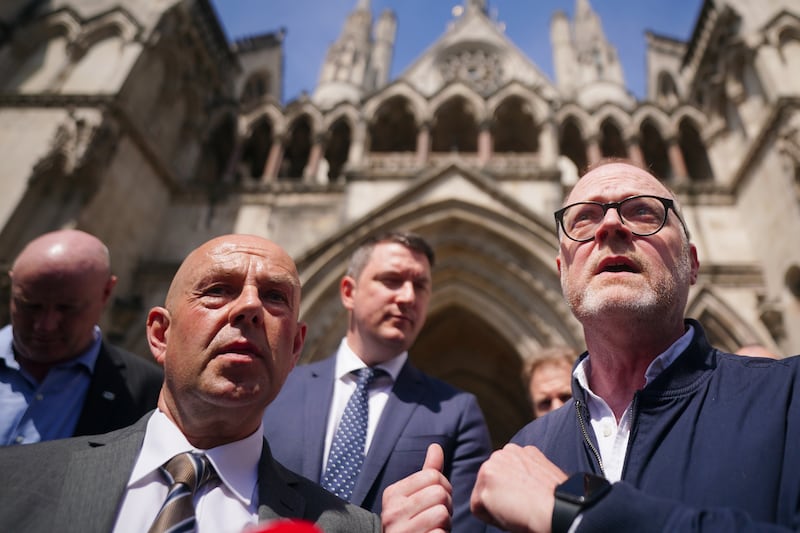In a statement that will bewilder most people, secretary of state Chris Heaton-Harris has offered the assessment that there has been "good progress" in efforts to get the DUP to end its Stormont boycott.
Given that the executive hasn't been able to sit for 18 months and the DUP continues to stymie the election of a speaker at the assembly, it is difficult to see where exactly anything that could be described as progress has taken place.
If anything, the DUP has hardened its stance. Its latest position is to demand that the British government bring forward legislation to satisfy its narrow requirements and particular sense of entitlement.
There can be, insists DUP leader Sir Jeffrey Donaldson, "no solid basis for an executive and assembly until we have arrangements that safeguard in law NI's place in the UK internal market and our constitutional arrangements are respected".
Sir Jeffrey and his colleagues are rather vague about what this legislation might look like. Indeed, there is an air of secrecy and behind-closed-doors mystery to the DUP's discussions with the government.
Read more:Secretary of State Chris Heaton-Harris optimistic of autumn return for Stormont
Read more:Newton Emerson: Windsor Framework parcel farce makes a return to Stormont harder to deliver for DUP
The party has, for example, apparently given the government a document – described as running to 18 pages, as if the number of pages were somehow significant – detailing its conditions for returning to the jobs its MLAs are still being paid for not doing. It might help public understanding of DUP concerns and their legitimacy if the party were to share this document more widely.
The findings of an eight-person panel, whose members included former leaders Peter Robinson and Arlene Robinson, also remain under wraps. At other stages, Sir Jeffrey has talked of a five point plan and seven tests as touchstones for progress.
Meanwhile, DUP MPs' most eye-catching contributions to the House of Commons have included praising Dolly Parton, congratulating the builders of the illegal Craigyhill bonfire in Larne for "an amazing feat of engineering" and seeking to revive the Drumcree parade.
When combined with the continued truculence of its Stormont strop over the Windsor Framework and the strain its boycott is placing on public services, many will conclude that the DUP is treating the Northern Ireland public with little short of contempt.
As Sinn Féin vice president Michelle O'Neill said after her party's meeting with the secretary of state, the current position is totally unsustainable and is only serving "to punish the public".
In reality, Mr Heaton-Harris has made no progress towards reviving Stormont. It is long past time that the British and Irish governments do more to ensure that citizens in the north have a devolved government that embraces power-sharing in spirit and practice.







